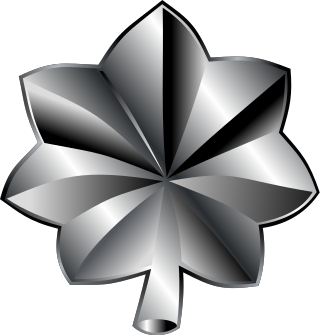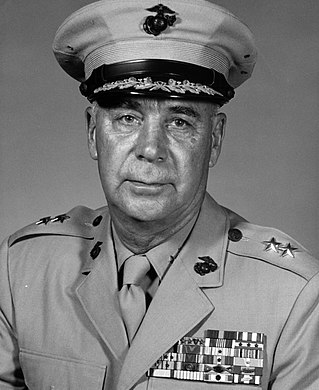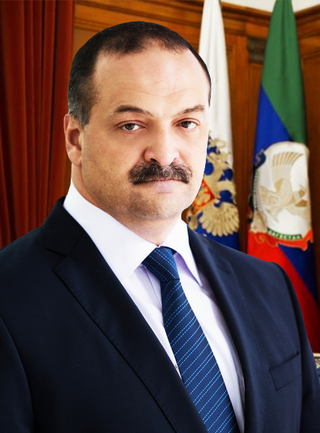
A brigade is a major tactical military formation that typically comprises three to six battalions plus supporting elements. It is roughly equivalent to an enlarged or reinforced regiment. Two or more brigades may constitute a division.

Field Marshal Michael John Dawson Walker, Baron Walker of Aldringham, is a retired British Army officer. Commissioned in 1966, he served in Cyprus, Northern Ireland, and in a variety of staff posts in the United Kingdom until 1984. After being given command of a battalion, he was mentioned in despatches for his service during a second tour of duty in Northern Ireland, this time in Derry, and subsequently served a tour on Gibraltar. He was promoted to brigadier, unusually having never held the rank of colonel, and took command of 20th Armoured Brigade in Germany before becoming I Corps chief of staff.
In the United States Army, Marine Corps, Air Force and Space Force, major is a field officer above the rank of captain and below the rank of lieutenant colonel. It is equivalent to the naval rank of lieutenant commander in the other uniformed services. Although lieutenant commanders are considered junior officers by their services, the rank of major is that of a senior officer in the United States Army, the United States Marine Corps, and the United States Air Force.

In the United States Army, Marine Corps, Air Force and Space Force, lieutenant colonel is a field-grade officer rank, just above the rank of major and just below the rank of colonel. It is equivalent to the naval rank of commander in the other uniformed services.
Tunku Tan Sri Osman was the first Malaysian Armed Forces Chief of Staff. He is a nephew of Tunku Abdul Rahman, Malaysia's first Prime Minister as well as a first cousin to the late Sultan Abdul Halim, the late Tunku Abdul Malik, the late Tunku Annuar and Sultan Sallehuddin since their fathers and The Tunku are brothers. General Tunku Osman was known for his strong principles and self-discipline as well as highly respected by the ranks and files of the army.

Edward Charles "Shy" Meyer was a United States Army general who served as the 29th Chief of Staff of the United States Army.
Lieutenant colonel (LtCol) (Swedish: Överstelöjtnant, Övlt) is a field grade officer rank in the Swedish Armed Forces, just above the rank of major and just below the rank of colonel. It is equivalent to the naval rank of commander in the Swedish Navy.

Major General Ronald G. Richard is a retired United States Marine Corps officer who last served as the Commanding General of Marine Corps Base Camp Lejeune.

Robert Dewey Bohn was a highly decorated officer of the United States Marine Corps, reaching the rank of major general. He served in three wars and concluded his career as commanding general of Marine Corps Base Camp Lejeune.
Major-General Sir Reginald Laurence Scoones, was a British Army officer who served during the Second World War and its aftermath. His older brother was General Sir Geoffry Scoones.

Major General Henry Newport Charles Heath was a British Army general during the First World War, who commanded the 48th Division from 1914 to 1915.

Robert Houston Pepper was an officer of the United States Marine Corps with the rank of lieutenant general, who is most noted for his work in the development of the Marine defense battalions during World War II and later as commanding general of the Fleet Marine Force, Pacific or 3rd Marine Division.

Henry William Buse Jr. was a lieutenant general in the United States Marine Corps. He was Chief of Staff, Headquarters Marine Corps and later commanding general of the Fleet Marine Force Pacific. Following his retirement from the Marine Corps, Buse served as assistant to three former presidents of the U.S. Olympic Committee.

Michael Patrick Ryan was a highly decorated officer of the United States Marine Corps with the rank of major general. He is most noted for his service as a company commander during Battle of Tarawa, where he earned the Navy Cross, the United States military's second-highest decoration awarded for valor in combat. Ryan later served in Korean and Vietnam Wars and ended his career as director of Marine Corps Reserve. Together with Colonel James L. Fowler, he co-founded the Marine Corps Marathon.

Carl Albert Youngdale was a highly decorated officer of the United States Marine Corps with the rank of major general. As an artillery officer, he took part in the three major conflicts of the 20th century and completed his 36 years career as commanding general of Camp Lejeune.

Edwin Bliss Wheeler was a highly decorated officer of the United States Marine Corps with the rank of major general. He served with famous Marine Raiders during World War II and earned the Silver Star for gallantry in action. Wheeler served two tours of duty in Vietnam, as commanding officer of 3rd Marine Regiment in 1964–1965 and later as commanding general of 1st Marine Division in 1969–1970.

Odell Maurice Conoley was a highly decorated officer of the United States Marine Corps with the rank of brigadier general, who is most noted for his service with 2nd Battalion, 7th Marines during World War II. He completed his career as deputy director for Operations, Plans, Policies and Operations Division, staff of the commander in chief, United States European Command, in Paris, France.

George Davis Webster was a decorated officer of the United States Marine Corps with the rank of brigadier general who is most noted as commanding general, Marine Corps Development and Education Command at Quantico, Virginia.
The second major was the junior staff officer rank in the Imperial Russian Army of the Russian Armed Forces of the imperial period of time, in the 18th century, and also the person wearing this rank.

Sergey Alimovich Melikov, is a Russian statesman and military leader, who has served as the 5th Head of the Republic of Dagestan since 14 October 2021.